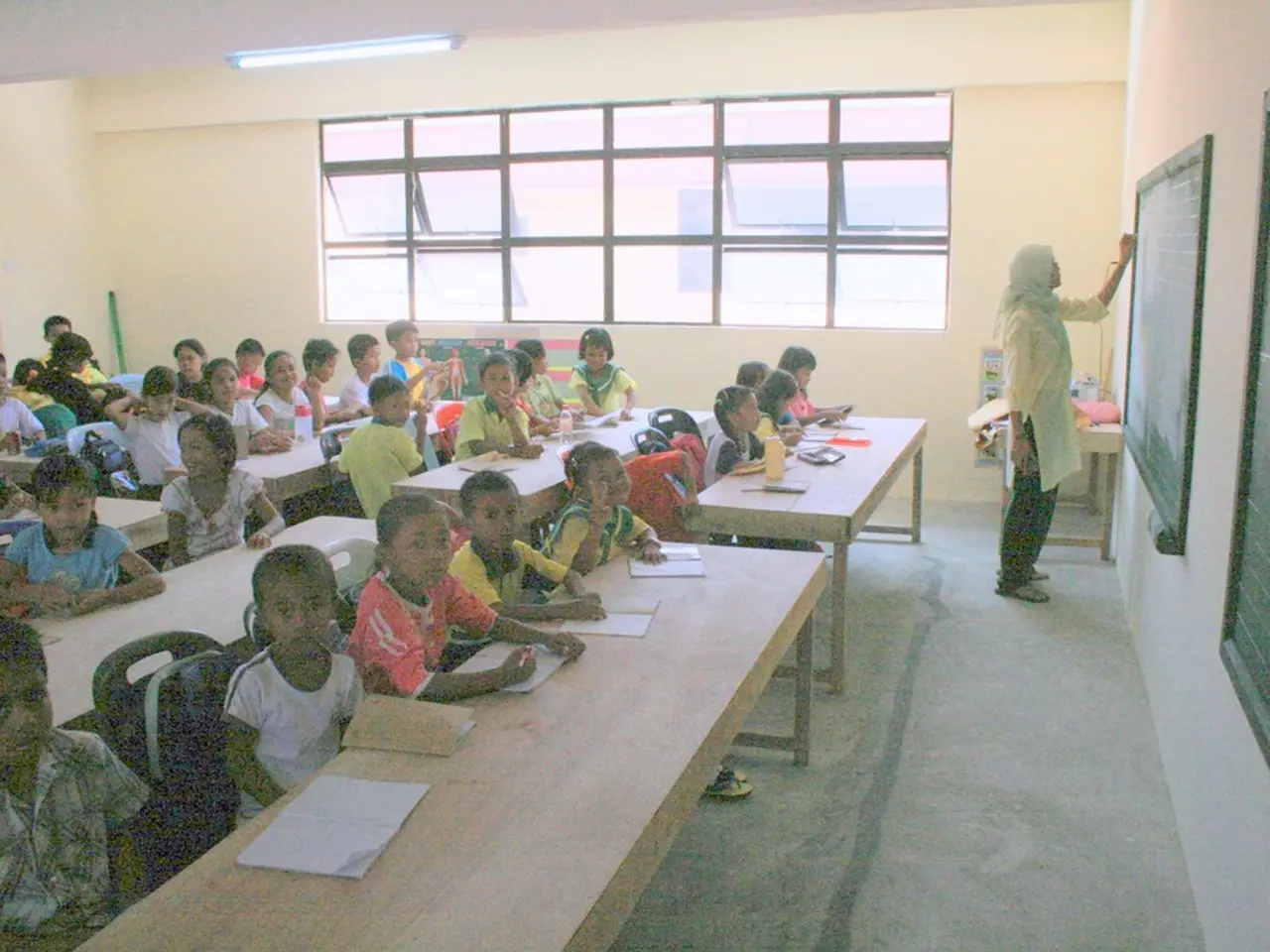Boosting Achievement: Productive Teaching Methods for Students vulnerable to Academic Struggles
In the quest to provide equitable learning opportunities, educational interventions play a pivotal role in supporting at-risk students. These interventions are designed to address the unique challenges faced by these students, such as socioeconomic hardships, family instability, or inadequate schooling.
Parental involvement significantly influences student success and promotes a sense of belonging. Recognizing this, schools can facilitate parental engagement through workshops and events that inform families about resources available for at-risk students.
One such resource is social-emotional learning (SEL), which contributes to the academic success of at-risk students in urban schools. SEL programs teach essential skills like emotional regulation, empathy, goal-setting, and coping with anxiety, empowering students personally and intellectually. For instance, game-based SEL interventions have demonstrated promising results in enhancing emotional regulation and interpersonal skills among urban middle school students exposed to significant adversity.
Individualized Educational Plans (IEPs) are tailored documents designed to meet the unique learning needs of at-risk students. Teachers collaborate with special educators, counselors, and educational psychologists to enrich intervention strategies. Academic support programs offer tutoring, mentoring, and skill-building workshops to help at-risk students catch up with their peers.
Technology-enhanced educational interventions leverage digital tools and resources to provide targeted support for at-risk students. Key components include adaptive learning software, online tutoring services, and mobile applications. Data collection should occur at multiple intervals, allowing educators to monitor progress over time and compare students who received interventions with those who did not.
While SEL has widespread support, it's crucial to consider culturally responsive SEL approaches that validate authentic emotional expression and support social justice. Teachers trained to address individual emotional and psychological needs can create more inclusive and supportive classrooms, fostering stronger student-teacher relationships and increased academic motivation.
Community engagement expands access to resources, including health services and counseling, which address the multifaceted challenges faced by at-risk students. Building supportive networks within the community involves collaborating with local organizations, businesses, and stakeholders. Initiatives such as mentorship programs and community tutoring can bridge gaps in academic performance.
Identifying at-risk students is essential for implementing effective interventions tailored to their unique needs. Indicators of being at-risk include poor academic performance, frequent absenteeism, and behavioral problems. Teachers play a vital role in monitoring the progress of at-risk students and making data-driven decisions.
Educational interventions can lead to long-term positive outcomes such as higher graduation rates and improved mental health. The effectiveness of these interventions is evaluated using key metrics like academic achievement, behavioral changes, and social-emotional development. Feedback from educators, students, and parents is invaluable in evaluating the effectiveness of these interventions.
In conclusion, a comprehensive approach that combines parental engagement, SEL initiatives, individualized educational plans, academic support programs, technology-enhanced interventions, community engagement, and behavioural interventions can significantly improve the academic success of at-risk students, promoting equitable learning opportunities.
References: [1] Zins, J. E., Weissberg, R. P., Wang, M. C., & Walberg, H. J. (1997). Building academic success on social and emotional learning: What does research tell us? School Psychology Review, 26(3), 253-273. [2] Durlak, J. A., Weissberg, R. P., Dymnicki, A. B., Taylor, R. D., & Schellinger, K. B. (2011). The impact of enhancing students' social and emotional learning: A meta-analysis of school-based universal interventions. Child Development, 82(1), 405-432. [4] Greenberg, M. T., Domitrovich, C. E., & Weissberg, R. P. (2015). Promoting positive youth development: Engaging the whole school, whole community, and whole child. New York, NY: Guilford Press. [5] Zins, J. E., Bloom, P., Weissberg, R. P., & Walberg, H. J. (2004). Building academic success on social and emotional learning: What does research tell us about the role of emotions in learning and achievement? Educational Psychologist, 39(2), 77-96.
Read also:
- Krafton countersues Unknown Worlds, asserting that Subnautica 2 posed a threat of significant damage to their entire franchise, similar to the potential harm Kerbal Space Program 2 supposedly inflicted.
- "Thrilled response" from animal rights organization following cessation of canine testing at London, Ontario healthcare facility
- Top-Notch Weed Killers for Fences in 2025: Efficient Boundary Management Solutions for a Clean Fence Line
- Is it secure for individuals with dementia to consume ice cream?




